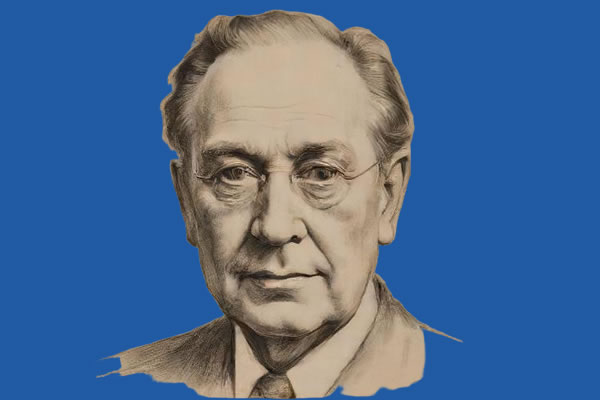Mortimer Jerome Adler (December 28, 1902 – June 28, 2001) was an American philosopher, educator and encyclopedist. He is the author of many works including How to Read a Book (1940).
The possession of the truth is the
highest goal of the human mind.
—
Philosophy is everybody’s business.
—
All genuine learning is active, not passive. It involves the use of the mind, not just the memory. It is a process of discovery, in which the student is the main agent, not the teacher.
—
I suspect that most of the individuals who have religious faith are content with blind faith. They feel no obligation to understand what they believe. They may even wish not to have their beliefs disturbed by thought.
—
Is it too much to expect from the schools that they train their students not only to interpret but to criticize; that is, to discriminate what is sound from error and falsehood, to suspend judgment if they are not convinced, or to judge with reason if they agree or disagree?
—
Television, radio, and all the sources of amusement and information that surround us in our daily lives are also artificial props. They can give us the impression that our minds are active, because we are required to react to stimuli from the outside. But the power of those external stimuli to keep us going is limited. They are like drugs. We grow used to them, and we continuously need more and more of them. Eventually, they have little or no effect. Then, if we lack resources within ourselves, we cease to grow intellectually, morally, and spiritually. When we cease to grow, we begin to die.
—
The purpose of learning is growth, and our minds, unlike our bodies, can continue growing as we continue to live.
—
Not to engage in the pursuit of ideas is to live like ants instead of like men.
—
Being influential is not the mark of a great book.
—
If you ask a living teacher a question, he will probably answer you. If you are puzzled by what he says, you can save yourself the trouble of thinking by asking him what he means. If, however, you ask a book a question, you must answer it yourself. In this respect, a book is like nature or the world. When you question it, it answers you only to the extent that you do the work of thinking and analysis yourself.
—
To agree is just as much of an exercise of critical judgment on your part as to disagree.
—
What reaches the heart without going through the mind is likely to bounce back and put the mind out of business. Propaganda taken in that way is like a drug you do not know you are swallowing. The effect is mysterious; you do not know afterwards why you feel or think the way you do.
—
You must tackle books that are beyond you, or, as we have said, books that are over your head. Only books of that sort will make you stretch your mind. And unless you stretch, you will not learn.
—
The person who says he knows what he thinks but cannot express it usually does not know what he thinks.
—
Perhaps you are beginning to see how essential a part of reading it is to be perplexed and know it. Wonder is the beginning of wisdom in learning from books as well as from nature.


